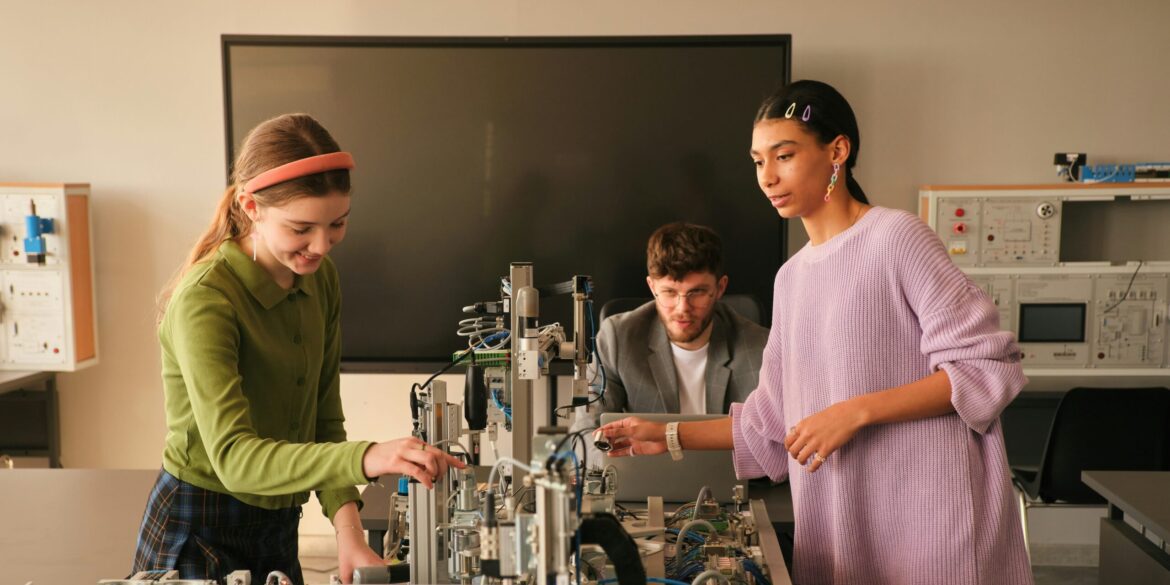June 21, 2025, marked a significant moment for American scientific advancement, as major breakthroughs in robotics and quantum mechanics captured global attention. These achievements not only underscore the nation’s leadership in cutting-edge research but also signal a broader push toward transformative technologies poised to impact sectors ranging from healthcare to defense.
Engineers at Carnegie Mellon University introduced what is now considered the world’s smallest self-powered bipedal robot. Nicknamed “Zippy,” the miniature machine stands under 1.5 inches tall and has shattered previous records for relative speed among micro-robots. Built with just one motor and a passive mechanical design, Zippy can move at an astounding 10 body lengths per second—equivalent to nearly 19 mph if scaled to human size.
What makes Zippy especially groundbreaking is its autonomy. Despite its size, it carries its own power source and control mechanism, allowing it to operate independently. Researchers believe this advancement will open the door to a new generation of micro-robots capable of navigating tight or hazardous spaces—ideal for search and rescue operations, medical diagnostics, and infrastructure inspection.
“By focusing on minimalist design and leveraging passive dynamics, we were able to achieve remarkable mobility and efficiency,” said Dr. Sarah Bergbreiter, a lead researcher on the project. The team aims to expand the robot’s capabilities by adding cameras and sensors, which could allow multiple Zippys to function in swarms, coordinating tasks in complex environments.
In another major development, a team of physicists from Harvard University and Switzerland’s Paul Scherrer Institute unveiled a technique to extend quantum state coherence by 1,000 times. The researchers used ultrafast laser pulses and advanced X-ray diagnostics to manipulate quantum excitations in a material known as a cuprate ladder. Typically, these excitations decay within femtoseconds; however, the new method allows them to be preserved significantly longer.
This breakthrough, often described as a form of quantum “time-freezing,” holds major implications for the future of quantum computing and precision sensing. By increasing coherence times, scientists can maintain the stability of quantum bits—or qubits—long enough to perform more complex operations and store data reliably. This is a critical step toward scalable, fault-tolerant quantum systems.
“This kind of quantum control was previously thought to be out of reach,” said lead physicist Dr. Zahid Hasan. “It brings us closer to realizing the full promise of quantum technology, including computing systems that could outperform the fastest supercomputers and sensors with unparalleled precision.”
In addition to scientific discoveries, the week also brought attention to the evolving regulatory landscape surrounding artificial intelligence. A federal court ruled that OpenAI must retain deleted ChatGPT user conversations for a minimum of 30 days, a decision that reflects growing concerns over data privacy and transparency in AI systems.
The ruling is expected to influence how AI companies manage user data, balancing innovation with accountability. Legal analysts suggest this move could lead to stricter industry standards around consent, data retention, and explainability in machine learning models.
The convergence of these events points to a larger trend: American institutions are accelerating the pace of technological innovation across multiple domains. Robotics is becoming more agile and adaptive, quantum technologies are overcoming key barriers to practical deployment, and the legal infrastructure around AI is beginning to mature.
These breakthroughs reinforce the U.S.’s position as a global leader in emerging technologies. As Zippy continues to evolve and quantum coherence extends into new frontiers, the innovations of June 2025 serve as a glimpse into a future increasingly shaped by micro-scale mechanics, quantum phenomena, and ethically governed artificial intelligence.

